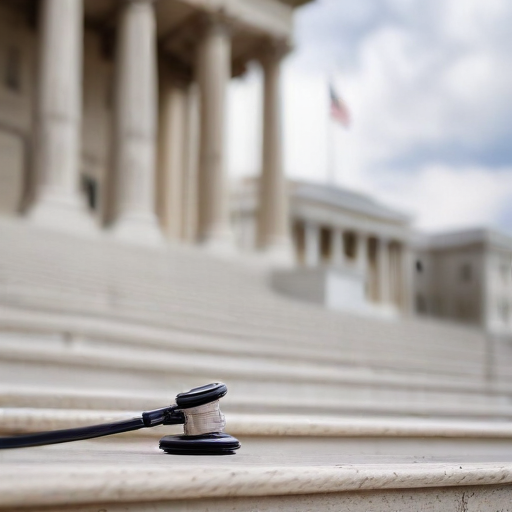President-elect Donald Trump has announced the appointment of Robert F. Kennedy Jr., an outspoken critic of vaccines, as the new Secretary of Health and Human Services (HHS). This announcement was made via Trump’s social media platform, Truth Social, and follows Kennedy’s recent decision to withdraw from the 2024 presidential race, subsequently endorsing Trump.
In his post, Trump expressed enthusiasm for the appointment, highlighting an ongoing struggle against what he referred to as the “industrial food complex” and pharmaceutical companies, which he believes have engaged in misleading tactics regarding public health. Kennedy echoed this sentiment on social media, emphasizing a “generational opportunity” to unite experts in various fields to combat chronic disease in America.
Kennedy, who gained considerable attention during his presidential campaign for his critical views on COVID-19 vaccines and childhood immunizations, has been associated with controversial claims linking vaccines to autism. These assertions have been widely debunked by extensive research over the years.
His new position at HHS encompasses oversight of several key health agencies, including the Centers for Disease Control and Prevention (CDC) and the Food and Drug Administration (FDA). There was speculation regarding the specific role Kennedy might take prior to this announcement, as he had been suggested for various positions related to public health initiatives aimed at childhood obesity and chronic diseases.
Reactions to Kennedy’s appointment have been mixed. Supporters point to his advocacy for healthy foods and transparency in public health policy, while critics express concern over his troubling history of spreading misinformation about vaccines and public health—an issue that could jeopardize the health of many Americans.
Some health officials, including former CDC Acting Director Dr. Richard Besser, have publicly expressed their alarm about Kennedy potentially leading such an influential department. Reports also indicate that some FDA workers are contemplating resignations if Kennedy is confirmed.
If appointed, Kennedy’s leadership could lead to significant changes within federal health agencies, especially given his prior threats to overhaul departments that counter his views.
This announcement is generating considerable discussion about the direction of national health policy under the incoming administration, with potential consequences for current public health strategies.
Positive outlook: This appointment could open the door for new dialogue regarding public health, emphasizing the importance of transparency and new approaches to health-related issues. Advocating for innovative strategies might foster collaboration among a diverse range of health experts toward reducing chronic diseases in the U.S.
In summary, Robert F. Kennedy Jr.’s appointment as Secretary of HHS could lead to a transformative period for health policy, while simultaneously sparking significant debate around established public health norms and practices.
